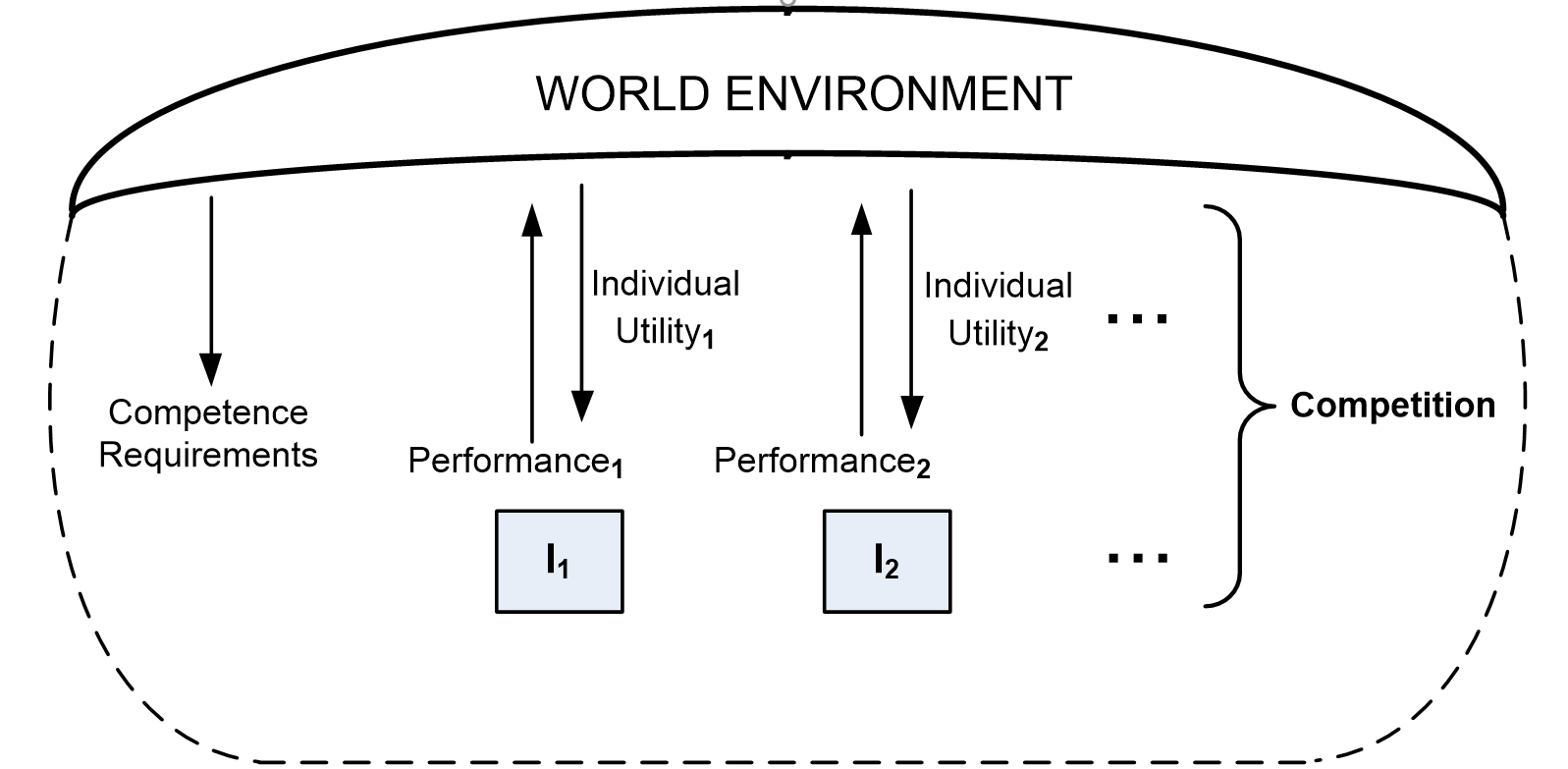
The Homo-economicus model of human social behavior is shown in Figure 5.1 where two individuals compete in a limited resource world environment, e.g. two beetles foraging for the same food in the same area. In this case, if one gets the food then the other loses out and gets no food. As the beetle with the food is more likely to survive, in natural selection individuals compete for advantage. The farmer growing the food also competes with the beetles, and both compete with bacteria that would also consume it. Limited resource environments reward individual competencies like strength or speed that increase success and survival. In Figure 5.1, competition for limited resources develops individuals to be competent to succeed in the world.
Homo-economicus or “economic man” is an individual who seeks to benefit themselves by reducing effort, increasing gain, or both (Persky, 1995). Individuals competing for advantage favors the evolution of competencies by competition. Mill’s economic man seeks wealth, leisure, luxury and procreation above all else, and Adam Smith adds that such individuals competing in a free market also help society, as when everyone competes to become more competent, the society produces more (Smith, 1776/1986). The model assumes people are rational actors who calculate their own best interests although people actually use heuristics—psychologically efficient versions of pure logic (Tversky & Kahneman, 1982). Competition drives self-interested individuals to competence gains by natural selection, giving a social evolution.
That free individuals will act in self-interest is a rule that can be described as follows:
Rule 1: If freely acting individuals {I1, I2 …} face action choices {a1, a2 …} with expected individual utility outcomes {IU(a1), IU(a2), …} then:
If IU(ai) > IU(aj) then prefer ai over aj
In words: Free individuals prefer acts expected to give more utility value to themselves.
The concept “utility value” here is deliberately left vague, so it may include physical gains like food, social information tokens like money, psychological gains like appreciation, or social gains like reputation, as well as the “gain” of expending less effort or money.